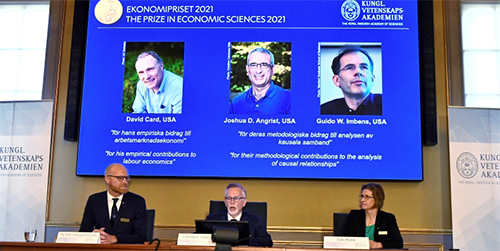The award of this year’s Nobel Prize in economics has further exploded a decades-old myth that increasing minimum wages costs jobs.
The prize was awarded to David Card, Joshua Angrist and Guido Imbens for real-world research in the 1990s that demonstrated, empirically, that the idea touted by conservative economists that higher minimum wages mean fewer jobs is not based on fact.
ITUC General Secretary Sharan Burrow said: “These Nobel Prize winners have demolished the unproven, yet influential, theory that ensuring that workers have a decent minimum wage somehow means job losses.
“Those who have peddled that mythical theory for decades, and the governments and institutions that have imposed the same theory, without proper evidence or against evidence to the contrary, are responsible for millions upon millions of people living in poverty.
“This prize is a serious indictment of many economists in that it has taken some thirty years for the facts to be given prominence over a damaging and groundless idea. At a time when the world needs evidence-based and scientific research to tackle a global pandemic, economics too needs to be based on factual analysis rather than ill-informed and ideological speculation dressed up as legitimate policy advice.
“Ensuring minimum living wages through statutory processes or collective bargaining is crucial to ending poverty; reversing the long-term trend of declining labour income shares; increasing demand; and building the basis for recovery – with jobs, decent work and resilience – in an increasingly unequal world.”
SOURCE: ITUC/CSI



